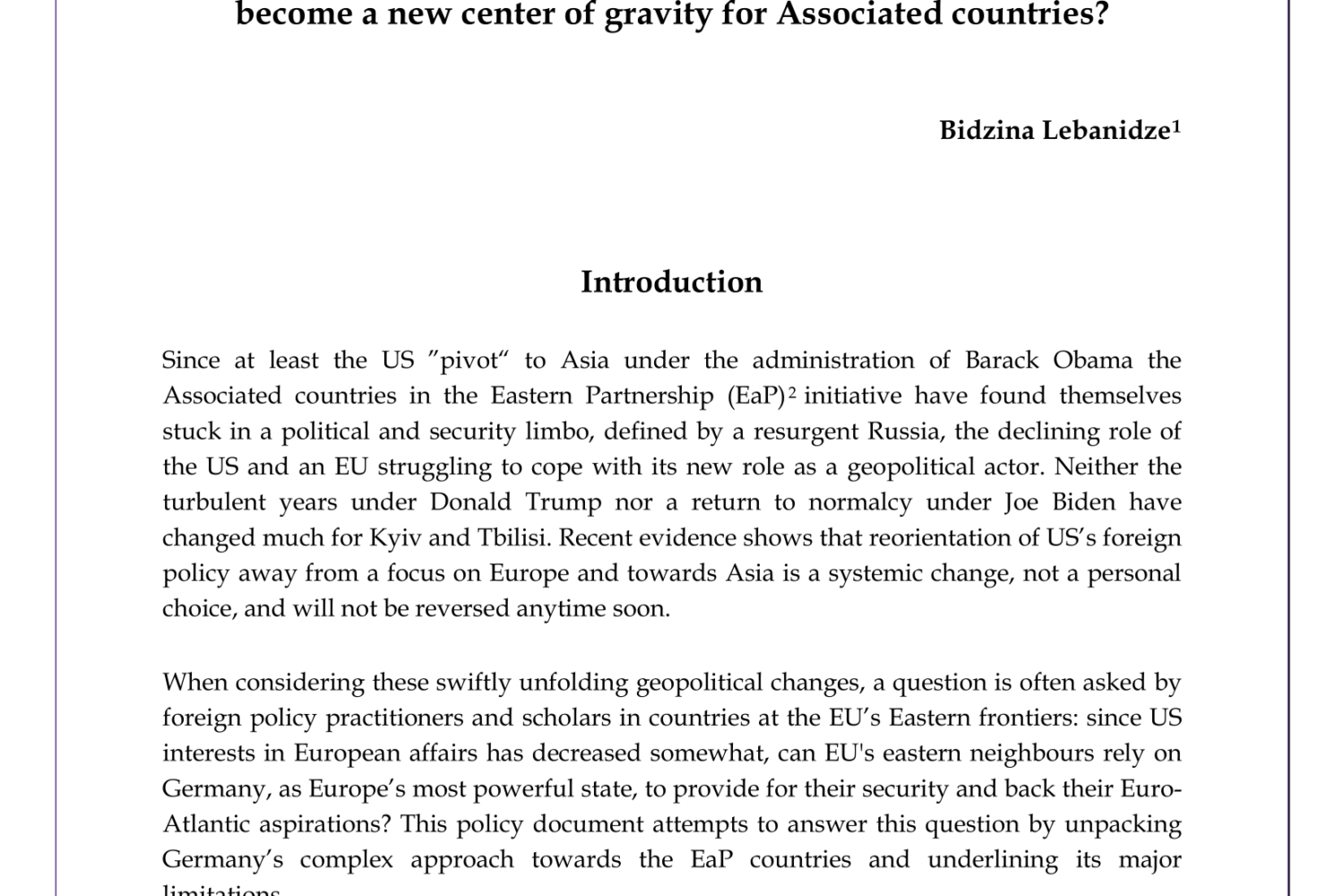2021-07-06 14:17:13
Since at least the US ”pivot“ to Asia under the administration of Barack Obama the Associated countries in the Eastern Partnership (EaP)[1] initiative have found themselves stuck in a political and security limbo, defined by a resurgent Russia, the declining role of the US and an EU struggling to cope with its new role as a geopolitical actor. Neither the turbulent years under Donald Trump nor a return to normalcy under Joe Biden have changed much for Kyiv and Tbilisi. Recent evidence shows that reorientation of US’s foreign policy away from a focus on Europe and towards Asia is a systemic change, not a personal choice, and will not be reversed anytime soon.
When considering these swiftly unfolding geopolitical changes, a question is often asked by foreign policy practitioners and scholars in countries at the EU’s Eastern frontiers: since US interests in European affairs has decreased somewhat, can EU’s eastern neighbours rely on Germany, as Europe’s most powerful state, to provide for their security and back their Euro-Atlantic aspirations? This policy document attempts to answer this question by unpacking Germany’s complex approach towards the EaP countries and underlining its major limitations.
[1] Ukraine, Moldova and Georgia.




